<< Previous | Displaying results 176-200 of 6769 for "" | Next >>
Kurt was born to Jewish parents in the city of Aachen, where his mother's family had resided since the 18th century. His father, though trained as a chef, worked as a butcher and also managed several stores for his father-in-law. The Paulys lived over one of those shops in the nearby suburb of Eilendorf. Kurt enjoyed large family gatherings, where he would play with his cousins, Anne and Margot Frank. 1933–39: When the Nazis came to power in 1933, the situation drastically changed for the Paulys.…
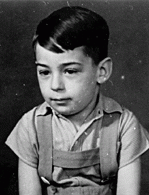
Pete grew up in Essen, a major industrial city on Germany's Ruhr River. His father worked as a cattle hide dealer for an international trading company in nearby Muehlheim. His mother was a designer for a fashionable women's dress shop. Pete, his younger twin brothers, and parents lived together in an apartment. 1933–39: Pete had barely passed his first birthday when the Nazis came to power. His father realized the danger that now faced Jews in Germany, and the family left for Prague, Czechoslovakia, in…
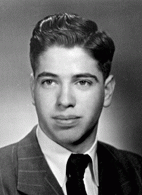
One of 12 children, Moniek grew up in Dabrowa Gornicza, an industrial town in western Poland. His father, Jacob, owned a general store, which he was forced to close in 1938 as the result of a boycott by local antisemites. Moniek attended both public and Jewish schools, and his father hoped that one day he would become a rabbi. 1933–39: On September 1, 1939, Moniek was awakened by the sounds of airplanes flying overhead as German forces invaded Poland. As the war drew closer, Moniek fled eastward, but…
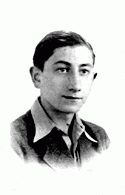
Tania grew up in Smorgonie, a Polish town where Jews constituted more than half of the population. Her father was a successful businessman who sold farming equipment and purchased flax for export. Her grandfather, an affluent merchant, traveled frequently and brought the first truck to Smorgonie. The Marcuses took part in the town's vibrant Jewish culture, attended the theater, and hosted discussions about art in their home. 1933–39: On September 1, 1939, German troops invaded Poland, triggering World…
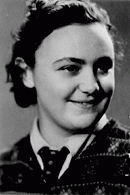
Hans was born to a Jewish family in the Sudetenland, a region of Czechoslovakia that had a large German population. In 1922 the Sachs family moved to Vienna, Austria, where they purchased a dry goods store. Hans attended public school and had many non-Jewish friends. 1933–39: By 1936 many of Hans' friends and their families supported the Nazi movement. In March 1938, German troops entered Austria and incorporated it into the Reich. Hans watched as large crowds in Vienna cheered Hitler when he visited…
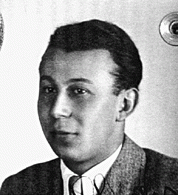
Regina was born in Radom, a city that had 120,000 inhabitants. Her father worked as a leather cutter for a large shoe manufacturer and her mother took care of their six children. The Gutmans were very religious and Regina attended Hebrew school in the afternoons. Radom had a vibrant Jewish community of some 30,000 people, several Yiddish daily newspapers, and beautiful synagogues. 1933–39: On September 1, 1939, the German army invaded Poland, and seven days later, Radom was occupied. Soon afterward, the…
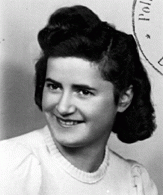
Sam was the eldest of five children born to Jewish parents in Kozienice, a town in east central Poland. His father owned a shoe factory and his mother cared for the children and the home. Kozienice had a thriving Jewish community that made up about half of the town's population. 1933–39: On September 1, 1939, German troops invaded Poland. That morning the Spiegels heard an air raid siren blaring and quickly left their house. Fifteen minutes later a bomb struck the building. Sam was just 17 years old.…
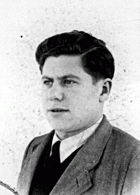
Elzbieta grew up in Iwonicz, a resort town in southwestern Poland noted for its mineral water. Her father, Edmund, was a respected physician and Helena, her mother, had studied pharmacology. At home, they spoke Polish and were among the few Jewish families who lived in Iwonicz. 1933–39: When German troops invaded Poland on September 1, 1939, Elzbieta's father was drafted into the Polish army. Seventeen days later, the Soviet army drove in from the east and Edmund was captured. He was transported to a…
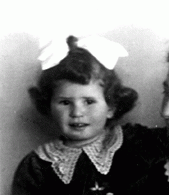
Susan grew up in Vacha, a small Thuringian town where her family had lived for more than 400 years. Her father, Herman, owned a general store and her mother, Bertha, took care of the home and children. Susan had a younger sister Brunhilde. The Strausses were one of about 25–30 Jewish families living in Vacha. 1933–39: Soon after the Nazis took power, many of Susan's friends stopped playing with her. In 1938 she was forced to leave the public school. That November, the Nazis unleashed a wave of pogroms…
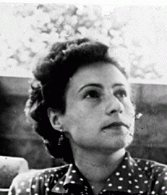
The Hilsenraths lived in Bad Kreuznach, a city in western Germany with a Jewish community that dated back to the 13th century. Susi was the eldest of three children. Her father owned a thriving linen store, and her mother took care of Susi and her two brothers. 1933–39: After the Nazis came to power, the Hilsenraths, like other Jewish families, began to feel the effects of increased antisemitism. Susi was forced to leave the public school, along with the other Jewish children. Even walking on the…
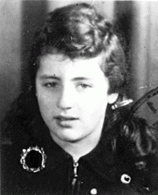
Gerd was the eldest of four children. His father, Josef, had left Ukraine in 1913 and opened a bicycle sales and repair shop in Bremen. His mother, Selma, was descended from a distinguished Jewish family and had been a kindergarten teacher and a bookkeeper for a large firm. As a child, Gerd experienced the hardships of the Depression and witnessed the violent street fights between the Nazis and their political opponents, the Communists and Socialists. 1933–39: When the Nazis came to power in 1933, Gerd…
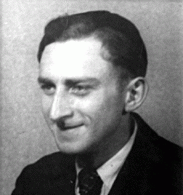
Martin was one of nine children born to orthodox Jewish parents in Veľká Poľana, a rural village in the Carpathian Mountains. His father owned a farm and a meat business, and his mother attended to the children and the home. Everyone in the family helped take care of the horses and cows. 1933–39: Martin attended the village's Czechoslovak schools, which were quite progressive. Like many of the other children, he looked forward to leaving the provincial life in Veľká Poľana. In 1938–1939, his…
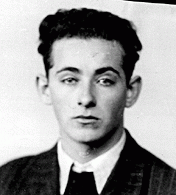
Lisa was born to a Jewish family who lived in a town about three miles from the German border. Her family had lived there for generations. Lisa's father exported geese to Germany, and her mother owned a fabric store. The family lived with Lisa's grandmother in a large, single-level, gray stucco house. Lisa attended a small Hebrew school in Raczki. 1933-39: In 1937 Lisa transferred to a public school. One day, in fifth grade during recess, some boys grabbed her long blonde hair. Others joined in and pinned…
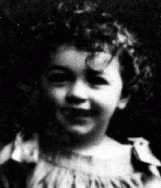
Barbara was the older of two daughters born to Jewish parents in Germany's capital, Berlin. Barbara's father was a successful lawyer. As soon as Barbara was old enough to walk, he would take her around Berlin to see the sights and tour the city's art museums. Barbara liked to go horseback riding and dreamed of becoming a dancer. 1933-39: After the Nazis came to power in January 1933, it was illegal for Barbara's father to have non-Jewish clients. His law practice quickly folded. Later that year when…
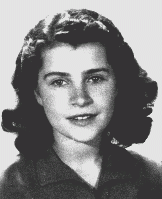
The Martons were one of 35 Jewish families in the small northern Transylvanian town of Beliu. Barbara's father owned a grocery, and her mother helped out in the store. The Martons lived in a comfortable home with a flower garden, and enjoyed friendly relations with the townspeople. As a child, Barbara learned Hebrew on Sunday mornings at the home of Beliu's rabbi. 1933-39: Barbara's father's business began to fall off when another grocery opened nearby in Beliu. By 1937 business was so bad that they sold…
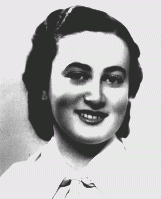
Bella was the oldest of four children born to a Jewish family in the small city of Sosnowiec, in Polish Silesia. Her father owned a successful knitting factory. In 1938, when she was 12, Bella began attending a private secondary school. 1933-39: When Bella's family returned from vacation in late August 1939, there were rumors of war. Her mother tried to stock up on food but the stores were already out of staples. The Germans took Sosnowiec on September 4; two weeks later they interned all the Jewish men…
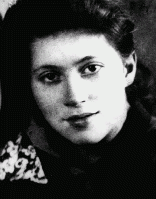
Beno was the oldest of three children in a Jewish family. His mother, originally from Austria, came to Czechoslovakia after World War I. Beno's father, a Swedish Jew, arrived there in search of work and became a successful merchant. The German-speaking Helmer home was frequently full of guests. Every day some students from the local rabbinical academy were invited to join the family for a meal. 1933-39: Beno's parents sent him to Budapest to attend high school. Later, because of his talent with languages,…
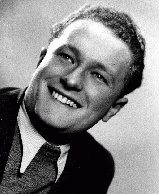
Raised by religious Jewish parents, Boleslaw and his older sister grew up in an apartment complex in a Jewish section of Warsaw. His father worked as an accountant. When Boleslaw was 8 years old, his mother died, and an aunt moved in to help raise him and his sister. Boleslaw loved electronics. When he was 10 years old, he succeeded in building a portable radio. 1933-39: The Germans attacked Warsaw on September 8, 1939. The bombing was relentless. Boleslaw's father wouldn't leave his ill relatives but…
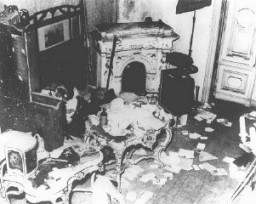
Cecilie was the youngest of six children born to a religious Jewish family in the Czechoslovakian town of Yasinya. Her father, who was from Poland, taught private lessons in math and German. The family owned a small grocery store, which Cecilie's mother managed. 1933-39: Cecilie's father died in 1934 when she was 9. In March 1939 Hungary, which was sympathetic to Nazi Germany, annexed the area of Czechoslovakia where they lived. One day, Cecilie arrived home to find her mother and sister had been arrested…
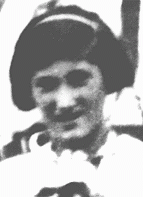
Elizabeth's father was a journalist who covered financial and political subjects. In 1930, because of the economic crisis in Austria, her father relocated his family from Vienna to Berlin. 1933-39: In 1933 the Nazis blacklisted Elizabeth's father as an anti-fascist writer, so her family returned to Vienna. With fascism rising there, her father left, eventually making it to Paris. They were to join him, but the Reich's borders were closed to Jews. Finally, Elizabeth's mother used her jewelry to get French…
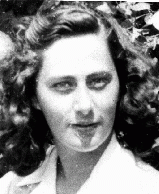
Manny was born to a religious Jewish family in the port city of Riga, Latvia. Shortly after Manny's birth, his father accepted a post as one of the four chief cantors in Budapest and the family returned to Hungary, where they had lived before 1933. Manny's father was based at the renowned Rombach Street synagogue. Between the wars, Budapest was an important Jewish center in Europe. 1933-39: Manny's father wouldn't let him have a bicycle. He thought someone might take it away from him because he was…
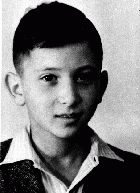
Ezra Zelig, who was called Zelig by family and friends, worked in the lumber business in Kozienice, a village by the Kozienice birch forest. He was married and the father of six children. A prominent member of the community, Zelig served on Kozienice's city council, and was also president of the local Zionist organization. 1933-39: In 1937 Zelig tried to obtain visas for his family to immigrate to Palestine [the Yishuv], at that time a British protectorate, but was unsuccessful because of the…
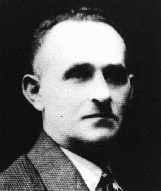
In 1930 Chaya married Mordecai Rubinstein, a businessman, and moved with him from her hometown of Kozienice to the nearby city of Radom. Chaya had been raised in a religious, Yiddish-speaking Jewish family, and her father owned a lumber mill near the Kozienice birch forest. In Radom, Chaya's husband operated a small bus line. 1933-39: Chaya gave birth to a daughter, Gila, in 1933. In the mid 1930s the Rubinsteins moved back to Kozienice. There, they were trapped when German troops invaded [Poland] in…
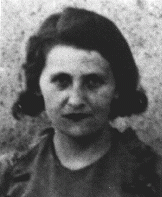
Mordecai, known in Yiddish as Motl, was born to a religious Jewish family with six children. His hometown of Kozienice, located near a birch forest, had an important lumber industry. After graduating from secondary school, Mordecai entered the lumber business. His small, successful company bought and sold lumber. 1933-39: A few months after the Germans invaded Poland in September 1939, Mordecai's father was warned to leave because, as a prominent member of the community, it was likely that the Germans…
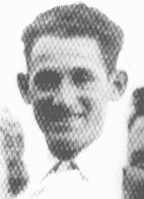
Lewek and his five brothers and sisters were born to religious Jewish parents in the town of Kozienice, situated in east central Poland near a birch forest. Lewek's father owned a sawmill, and when Lewek and his brothers were grown, they helped their father manage the family business. 1933-39: When Lewek was 15 he attended an agricultural school near Kozienice, because he wanted to immigrate to Palestine [Aliyah] to work the land. But after the Nazis rose to power in Germany in 1933, immigration…
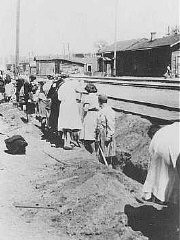
We would like to thank Crown Family Philanthropies, Abe and Ida Cooper Foundation, the Claims Conference, EVZ, and BMF for supporting the ongoing work to create content and resources for the Holocaust Encyclopedia. View the list of donor acknowledgement.